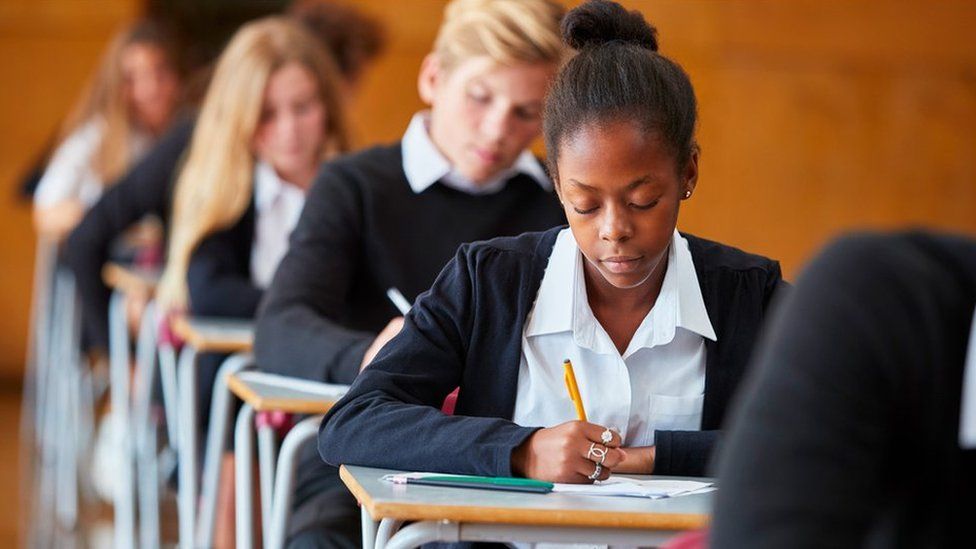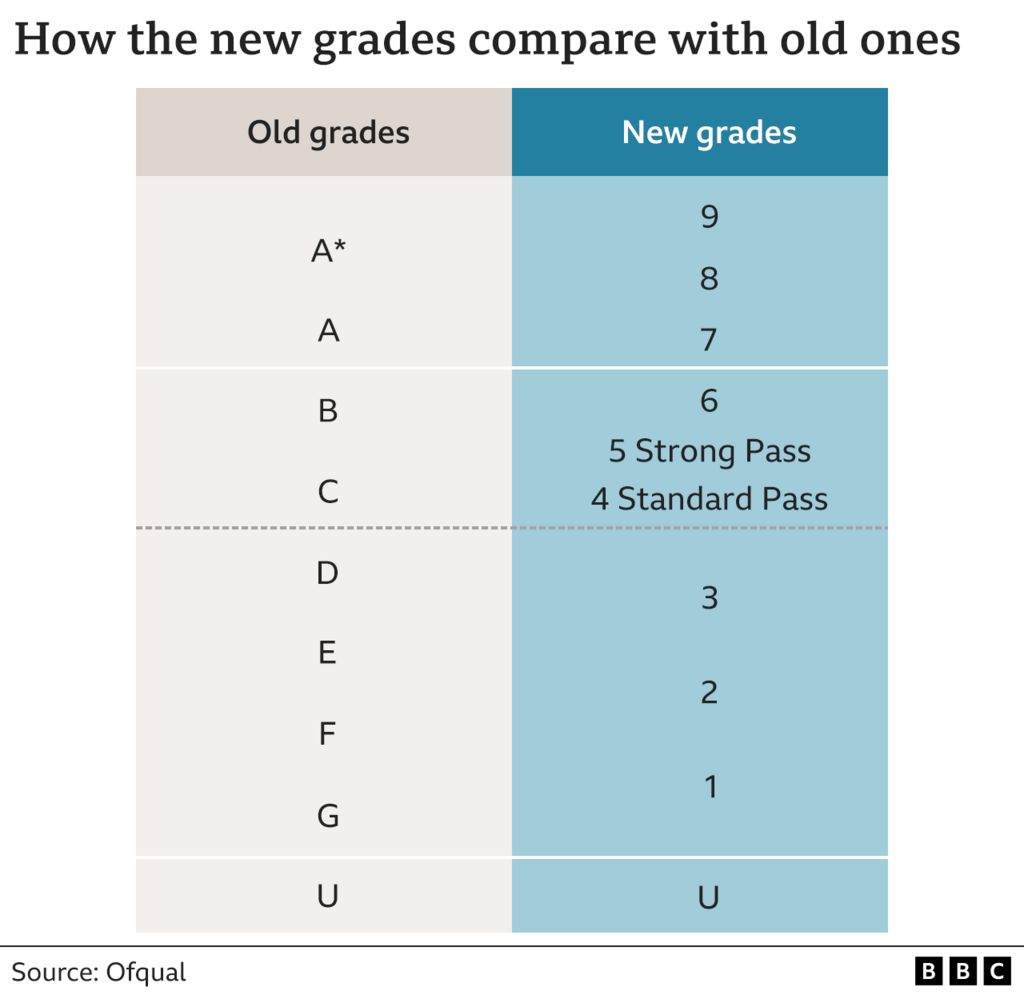Students across the UK are waiting for GCSE results which – for the first time in two years – will be based on how they performed in end-of-year exams.
In recognition of the serious disruption pupils faced during the pandemic, this year’s exams will be graded more generously.
When is results day?
Pupils will get their GCSE results from 08:00 BST on Thursday, 25 August in England, Wales and Northern Ireland. Some BTec Firsts, Technical and Tech Awards students will also receive results.
In Scotland, students get their National 4 and 5 results from 08:00 BST on Tuesday, 9 August.
How do I get my results?
You should be able to collect your results in person from your school, so check what arrangements are in place.
If you can’t go, ask your school in advance if you can access them online, or if someone else can pick them up for you.
In Scotland, your certificate will come in the post, but if you signed up to MySQA, you’ll get your results by text or email.
How have grades been decided this year?
The year’s final grades are based on exams.
Students may need fewer marks to reach a particular grade, or if they are very close to the number of marks needed for a higher mark, they may be looked at more favourably than in previous years.
Some parts of the curriculum were cut, and students were also given information about areas to revise.
However, exam boards were criticised for mistakes on some papers, where pupils were tested on topics they had been told wouldn’t come up.
 Image source, Getty Images
Image source, Getty ImagesIt’s expected that the overall results will be lower than in the last two years, when grades were based entirely on teacher assessment. But they are predicted to be higher than in 2019, the last year of exams before the pandemic.
Scotland had record results in 2020, based on teacher assessments, but saw a slight dip in 2021 when the Scottish Qualification Authority (SQA) marked student work which had been done in school.
The SQA is also taking a more generous approach to grading this year.
What grade will I get?

Wales kept its letter-based grading structure, while Northern Ireland opted for a mixture of letters and numbers.
In Scotland, the National 4 qualification is based on continuous assessment, with each unit that makes up the course marked as pass or fail. National 5s are graded A-D or “no award”.
What about BTecs?
BTecs – or Business and Technology Education Council qualifications – are largely assessed through practical work done during the course, with exams making up a smaller proportion of the final mark.
 Image source, Getty Images
Image source, Getty ImagesGrade boundaries for each unit taken in school or college have been looked at, as well as those for the final exams.
Students are normally awarded a pass, merit or distinction.
What if I’m not happy with my results?
If you’re unhappy with your GCSE or BTec grade, you should first talk to your school or college.
In England, Wales and Northern Ireland, your school will contact the exam board on your behalf and ask for your marks to be reviewed.
If you still think you’ve been unfairly graded after a review, you can ask your school or college to appeal. The exam board will look at your work again, and correct your mark if necessary.
BTec students can also appeal directly to their exam board.
If you’re still not satisfied, you can request a review from the exams regulator Ofqual.
In Scotland, the process is slightly different. You normally receive a grade estimate which is submitted to the exam board.
If your final grade is lower that this, you can appeal directly to the SQA, but should speak to your school or college first. If your appeal is accepted, the exam board will look at the marks you received.
Source: BBC
